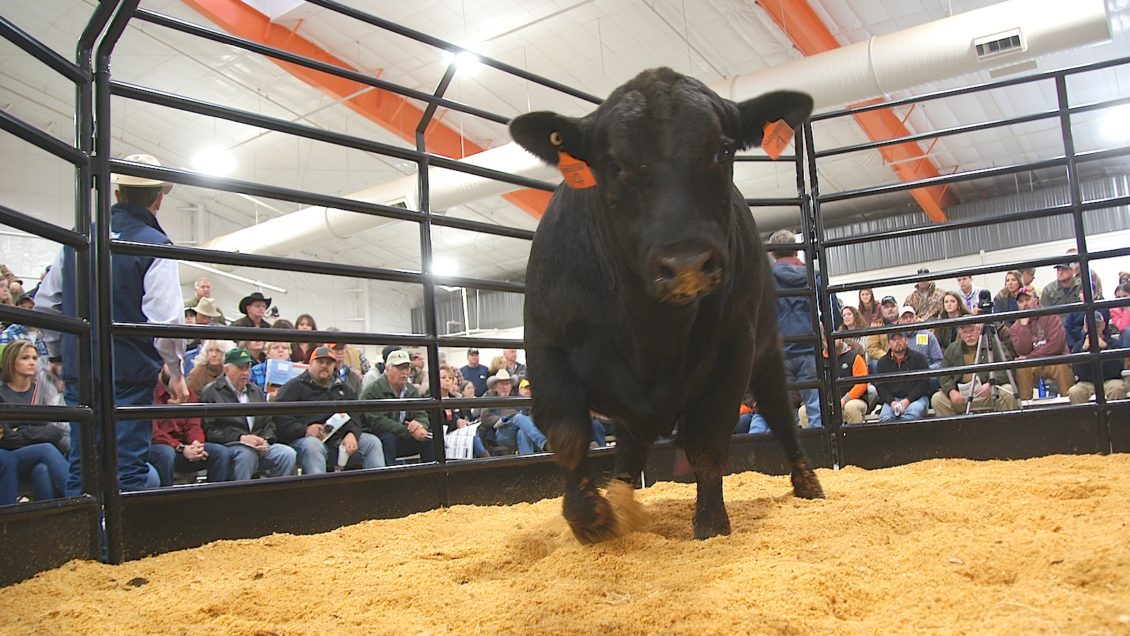
CLEMSON — It may look like a typical cattle auction ring, but the bulls that passed through the 43rd annual Clemson University Bull Test sale were really under a gigantic microscope.
More than 300 beef business professionals were examining 49 yearling bulls for the qualities they need to improve the genetics in the next generations of beef cattle in the Southeast.
“Cattle producers need the best information they can get to make the right decisions for their herds,” said Steve Meadows, who directs the Clemson test and sale. “The data that the Clemson Bull Test provides producers helps them make the best choices for their herds, whether their goal is to increase performance, improve feed efficiency, lower birth weights or whatever. Achieving the goal starts with solid information.”
[vid origin=”youtube” vid_id=”_4RK_WPikQ4″ size=”medium” align=”left”]
Monitoring systems track each bull’s feed intake during the test, measure weight and other performance indicators, such as height. The data is used to create indexes that offer a glimpse at how the bulls’ offspring may perform.

The performance record also reports “residual feed intake,” or RFI, a statistic that helps indicate each animal’s feed conversion efficiency.
“The RFI tells the cattle producer more than just growth rate alone,” said Matthew Burns, leader of the Clemson Extension Service Livestock and Forages Program. “It measures efficiency in feed conversion, which is especially important because feed is among the largest expenses in a cattle operation.”
All these statistics on each bull are published in the sale catalog for buyers, which visitors carry with them as they scrutinize the 1,500-pound animals in their pens before the auction.
At a dinner the evening before the Feb. 2 sale at the T. Ed Garrison Arena cattle complex the cattle producers received a briefing on yearling bull nutrition from Clemson Extension animal science specialist Brian Bolt. The event also recognized the consignors of the top bulls in the test:

- Veterinarian Leonard Fussell of Primus Genetics in Millers Creek, North Carolina, took the award for the bull with the highest RFI.
- The award for the bull with the highest weight per day of age went to John Cook of Cook’s Cattle Service in Buckhead, Georgia.
- Eugene Shuffler of the Shuffler Farm in Union Grover, North Carolina, took top honors for both the highest average daily gain and the top performance index.
The success of the efforts of the nearly two dozen consignors of bulls in this year’s test were measured in the sale, in which the bulls averaged more than $3,100 apiece. In addition to the bulls, 35 open heifers were auctioned at an average price of $1,146.
“At the end of the day, the bull test is all about providing the best genetics possible for the cattle business,” he said. “A small difference in feed conversion and growth efficiency could mean the difference in whether or not a cattle producer makes a profit. In today’s highly competitive environment, we’re trying to give South Carolina cattle producers every possible advantage.”
Get in touch and we will connect you with the author or another expert.
Or email us at news@clemson.edu

